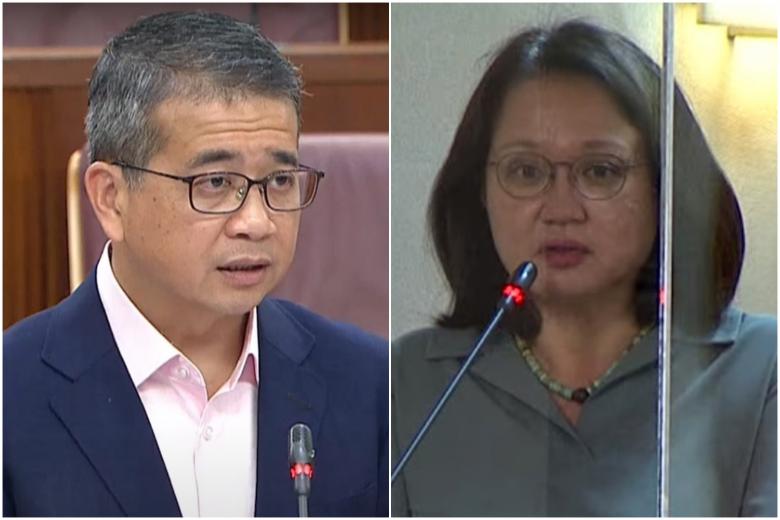SINGAPORE - The feasibility of translating court documents into other languages was the focus of an exchange between Second Minister for Law Edwin Tong and Workers' Party chairman Sylvia Lim on Tuesday (March 2).
During the debate on the Judicature's budget, Ms Lim (Aljunied GRC) asked if documents like court orders can be translated into other languages such as Chinese, Malay and Tamil at a nominal fee or for free.
Mr Tong said there are already avenues available for people to get help in understanding their court documents, for instance, from staff at the courts. He noted that they may not understand the documents even if these were translated due to the nature of the legal content.
Ms Lim made the point that while residents can seek help through the Community Development Councils (CDC) to have their court orders explained to them verbally, "sometimes when people talk to you, you can't retain the information or you remember inaccurately".
"If you have a translated document, you can refer to it and it is, in a sense, a more reliable source," she said.
In response, Mr Tong said: "In the appropriate cases, we can consider a full translation of the court document. But I think Ms Lim would also appreciate that it is not in every case that a full translation automatically means that the person who is receiving this document, even in his translated language, can really understand it."
He instead suggested that pro bono lawyers step in to help translate the court document and also explain its implications for the litigant-in-person - someone who is not represented by a lawyer.
Mr Tong added that his ministry will continue to ensure, through various means, that every litigant-in-person is able to understand the judicial process, what the judge is saying and what the other party is seeking to achieve.
He also said the authorities are "keenly sensitive to the needs of court users who are not represented and less technologically inclined", given the increased use of remote hearings and technology in the courts.
Litigants-in-person can get help via telephone and physical counter services, as well as e-mail and online live-chats.
They also ask for their matters to be heard physically, if they are uncomfortable or cannot cope with remote hearings, he added.
The courts also have dedicated video-conferencing rooms for litigants who lack the means or knowledge to connect to such facilities.
During the debate on the Ministry of Law's budget, Ms Lim had also asked whether the Legal Aid Bureau's (LAB) information chatbot iLAB, launched in February last year, can handle queries from the public in other languages such as Chinese, Malay and Tamil.
Mr Tong said the chatbot, which currently provides customised legal information on key topics such as divorce, personal protection orders, and custody matters, will have more topics added, as part of efforts to make legal information and advice more accessible.
While iLAB currently only functions in English, the ministry will look at the possibility of adding other languages, he added.
He noted that due to the nature of the content on iLAB, which consists legal advice and an outline of the laws, it is often not as easily translatable into different languages.
"Nonetheless, if a litigant-in-person or a litigant who is looking at commencing a claim needs to find resources in other languages, there are other facilities available, such as the concierge, the front staff counter," he said.


